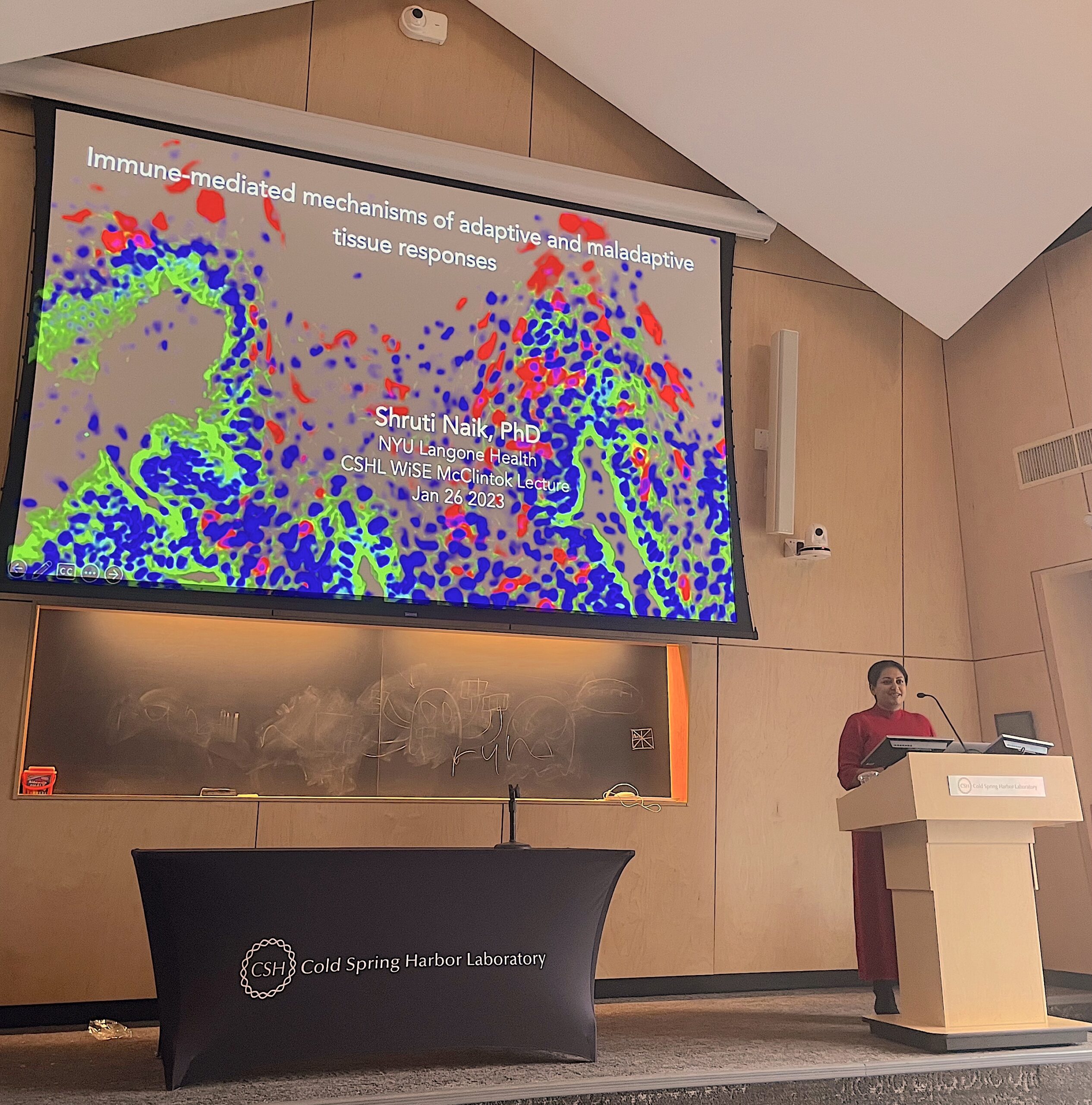Women are far less likely to be invited to speak on their research by academic institutes and universities than men; CSHL is no exception. These opportunities are critical for garnering recognition in the scientific community, for establishing collaborations, and for career advancement more generally.
In order to address the lack of women speaker invitations being extended by our own institution, WiSE successfully petitioned the CSHL administration to establish the Barbara McClintock lecture series in 2015. This initiative secures two slots each year (out of ~15 total for CSHL) for WiSE to co-host lectures from rising women stars in academia.
The McClintock Lecture Series honors the legacy of CSHL scientist and Nobel Laureate, Barbara McClintock. McClintock was a brilliant and accomplished scientist who revolutionized the study of genetics and made the groundbreaking discovery of “jumping genes” – now known as transposons. She remains the only woman to have ever received an unshared Nobel Prize in Physiology or Medicine. Her strength, perseverance, and endless curiosity allowed her to succeed in science at a time when very few women were welcome in the field worldwide.
McClintock Lectures 2023
- Link to learn more about Dr. Naik’s research: https://naiklab.com/



Past McClintock Lectures:
Leslie Vosshall
HHMI Investigator, Professor, Rockefeller University The Vosshall lab studies how complex behaviors are controlled by cues from the environment and modulated by internal physiological state. Working with Drosophila Melanogaster flies, mosquitoes and human subjects, Dr. Vosshall’s research yielded new knowledge about how sensory stimuli are processed and perceived.To learn more about her research: http://vosshall.rockefeller.edu/…
Ann Graybiel
Professor, Department of Brain and Cognitive Sciences, MIT February 2nd, 2016 On February 2, 2016 WiSE hosted Dr. Ann Graybiel as the first McClintock Lecturer! Ann Graybiel studies the basal ganglia, forebrain structures that are profoundly important for normal brain function but are also implicated in Parkinson’s disease, Huntington’s disease, obsessive-compulsive disorder, and addiction. Graybiel’s…


